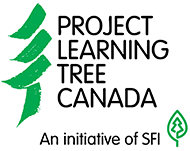Good afternoon Mr. Chair and Committee Members:
As noted already, my name is Kathy Abusow, and I am President & CEO of the Sustainable Forestry Initiative. On behalf of SFI, I am pleased to be speaking with the committee to discuss economic recovery in the forest sector.
SFI is a non-profit that advances sustainability through forest-focused collaboration. Collaboration is part of our mission and is essential for this sector’s economic recovery. I will return to this theme later in my remarks.
We are a global leader in standards setting, conservation, collaboration, community engagement and environmental education. SFI collaborates with the forest and conservation sector, resource professionals, local communities, Indigenous Peoples, governments, and universities to address local, national and global sustainability challenges, including climate change, species maintenance and recovery, while growing opportunities to employ youth, improve on Indigenous relations, and be part of a circular economy.
GREEN JOBS
Project Learning Tree Canada (or PLT Canada), which is an initiative of SFI, has placed young Canadians in 3,500 green jobs in the forest and conservation sector since 2018. In so doing, we have achieved gender balance, and provided work experiences for over 500 Indigenous youth, across 80 Indigenous communities, and have also engaged over 200 employers across Canada in the SFI forest network and the Canadian Parks Council network. Up until the Fall Economic Statement was announced, we were very concerned that our program – which has been growing in relevance and reach in supporting skills development and work experiences to grow the next generation of future forest leaders – would come to a close due to a lack of funding for the Youth and Employment Skills Strategy.
Therefore, I would like to congratulate the hardworking public servants from various departments who crafted the Fall Economic Statement. SFI and PLT Canada know that in order for the forest sector to recover, its workforce needs to be resilient and diverse. The additional $575.3 million for the Youth Employment and Skills Strategy given in the Fall Economic Statement, will go a long way in supporting all youth in finding high-quality jobs, and foster a diverse and resilient workforce for the forest and conservation sector.
This funding will enable us and other partners to maximize the role the forest sector can play in driving forward economic recovery.
As the Finance Minister noted in the Fall Economic Statement, the current crisis has had a devastating impact on young Canadians.
The forest sector is part of the renewable, circular and bioeconomy. There is a growing field, full of career opportunities for interested youth. In fact, the International Labour Organization estimates that 60 million jobs could be created in this sector by 2030.
TWO BILLION TREES
I also wanted to speak to the role that the 2 billion trees initiative can play in economic recovery for the forest sector. While planting and managing two billion trees will be important to address climate change, it also supports job creation, and green infrastructure — a low-cost solution to many of Canada’s significant sustainability challenges.
As this committee will be well aware, healthy forests store carbon. Canada’s forests have been devastated by climate change — including by damaging forest fires, and a steep increase in pests and disease. These factors undermine our nation’s climate recovery, species recovery, clean water, and also damage our ability to have sustainable harvest levels. As a result, it damages our ability to have the sustainable, resilient economy we want.
The two billion trees investment, including the $3.16 billion of funding promised in the Fall Economic Statement, will help restore degraded forests that have been degraded by climate change and keep our forest stock whole. In addition, it creates the opportunity to increase our tree canopy in urban centres and municipalities across Canada. I know that Tree Canada is also on this panel today and will likely speak about the importance of trees in urban centres. SFI collaborates in the sustainably managed forest landscapes and will be playing an even more significant role partnering with organizations including Tree Canada in urban forests in the new year.
COLLABORATION
SFI’s mission is to advance sustainability through forest-focused collaboration.
We hope that as this committee studies potential solutions and ways forward in recovery for the forest sector, that you consider this key factor: All partners and stakeholders have a role to play in recovery and each has a track record of success. Collaboration is especially important in these challenging times – as are scalable solutions. SFI has certified over 120 million hectares of forest land across Canada for being sustainably managed. We’ve achieved this through collaboration. We’ve placed 3,500 youth into Green Jobs in the forest and conservation sector. We’ve achieved this through collaboration with 200 employers, 80 indigenous communities and leading conservation groups across Canada, academic and research organizations, and we have a demonstrated track record of successfully collaborating with NRCan, ECCC and ESDC.
CLOSING
At SFI, we roll up our sleeves and work together to ensure we have sustainable forests that are part of a sustainable nation and that provide local, national and global solutions to some of our world’s biggest challenges.



